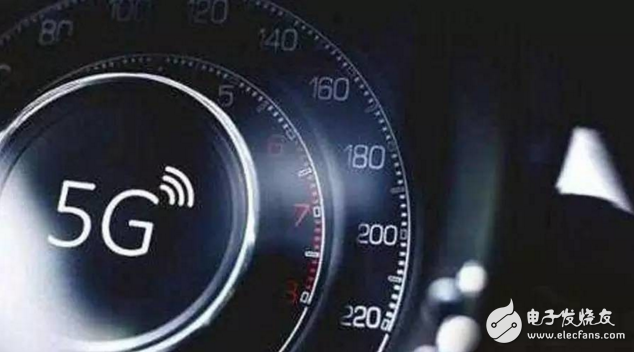China's deployment of 5G is accelerating. It is reported that 5G will usher in the first large-scale commercial use. It will be the first to provide 5G application services at the PyeongChang Olympic Games on February 9, 2018. It is also the global 5G service. The first large-scale commercial use.
On December 21, 2017, the 3GPP TSG RAN Plenary successfully completed the development of the first commercially available 5G NR standard in Lisbon, Portugal. Industry partners such as operators, equipment vendors and terminal chip manufacturers have reached an agreement to accelerate the development of 5G NR standards and help the global 5G industrialization process.

On February 9, 2018, the Korean Pyeongchang Winter Olympics, which will open on Friday, will be the first to provide 5G application services. Users can experience the 5G speed directly at the PyeongChang Winter Olympics. The first practical application of the global 5G.

The 5G service of the Winter Olympics was jointly supported by Korea Telecom, Samsung, Intel and other companies, and the preparatory work was completed as early as this month for the Winter Olympics. On January 11, the Ministry of Science, Technology, and Information Technology of the Republic of Korea held a 5G conference. The participants included more than ten representatives of Korea Telecom, SK Telecom, and LG U to provide 5G components, equipment and services.
At the conference, Yoo Young-min, Minister of Science and Technology Information and Communication of South Korea, said that the government hopes that South Korea will be the first to launch the world's first 5G service in March 2019, deploying 5G network earlier, which will be Industry 4.0. Foundation. The private sector is critical to South Korea's leadership in global 5G development.
South Korea has spared no effort in promoting the development of 5G. In 2018, three operators including Korea Telecom are expected to invest more than 10 trillion won (about 60.95 billion yuan) for 5G deployment.
Seeing that our neighbors are in full swing in the 5G layout, China, which ranks second in terms of global GDP, will certainly not fall behind.
China's deployment for 5GNot long ago, the Bureau of Industry and Information finally revealed the exact news about 5G. On January 30 this year, Zhang Feng, chief engineer of the Ministry of Industry and Information Technology, said at the press conference that 2018 is a crucial year for the 5G standard determination and commercial product development. The Ministry of Industry and Information Technology will promote the 5G system equipment to reach the pre-commercial level.

If you really enter the 5G era, the user's average speed will reach 20Gb/s, and you can download a high-definition movie in the blink of an eye. This ultra-high transmission speed is faster than most Wi-Fi currently on the market, and it can solve almost all current connection problems.
The spectrum is the basic resource of wireless communication technology. In the future, the global 5G starting frequency band will be C-band (spectrum range is 3.3GHz-4.2GHz, 4.4GHz-5.0GHz) and millimeter wave band 26GHz/28GHz/39GHz. The soldiers and horses did not move, and the grain and grass first. The Ministry of Industry and Information Technology has released the frequency usage plan for the 5G system in the 3000-5000MHz band (mid-band) in 2017. The plan specifies 3300-3400MHz (the upper limit of indoor use), 3400-3600MHz and 4800-5000MHz as the 5G. The working frequency band of the system.
In June 2017, China's first 5G base station was officially opened. Although this base station was only set up for 5G field test, it also proves that China has been on the road of 5G high-speed development.
The three domestic mobile operators have long been on the 5G for a long time. From 7 years ago, the three major operators have invested a total of 180 billion US dollars in 5G infrastructure.
Compared to previous investments in 4G, today's investment in 5G has more than doubled. In addition to these operators, many mobile phone manufacturers have already confirmed their own 5G mobile phone publishing schedule.
But obviously these are just the things that China has arranged and will do in the future. We get far more than we see today.
United States in "guilty"As the key to the future of the Internet of Things, the impact of 5G is no less than that of Watt inventing the steam engine and Bill Gates to develop Windows. These are important events that can be re-divided into the global economic sector.

Relevant survey agencies in the United States predict that by 2035, 5G will generate 12.3 trillion US dollars of economic output globally, equivalent to the total annual expenditure of all American consumers. And the development of 5G will also greatly improve the overall employment environment in the country. The 2018 Global Employment and Social Outlook released by the International Labor Organization reports that the global unemployment rate will remain at a high level of 5.6% in 2018, the employment environment. Still not good.
According to relevant analysts, the 5G value chain will create 22 million jobs worldwide, of which China will receive 9.5 million jobs, the largest in the world, and 3.4 million in the United States.
Recognizing that the United States has fallen behind China in this field, the United States is already considering the establishment of a 5G network operated by the government in order to catch up with and even surpass China. According to foreign media reports, relevant US departments are contacting communications companies in the United States, Europe, and other Asian countries except China. A US technical official also confirmed that the relevant departments are discussing countermeasures and expect to be handed over to Trump after six to eight months.
But whether it is the US Federal Communications Commission or a company engaged in related industries in the United States, it is opposed to the federal government's "nationalization" of 5G networks. The US telecommunications group industry organization said that government participation may slow down the development of the technology.
summary2018 is an important year for the development of 5G, and China, the United States, South Korea, Japan, and the European Union will all play an important role in this field. In an interview with Fortune magazine, mobile expert Joe Madden said that in the past, Chinese manufacturers had to rely on semiconductors produced by US companies, but now China has plans to launch its own 5G semiconductors, from backward to beyond, China to US companies. A lesson.
The importance of 5G is self-evident. It is no exaggeration to say that 5G is the future. The development of 5G industry is closely related to national air transport. In 2018, China will continue to exert its strength in this field, laying a solid foundation for the upcoming Internet of Things era and building a smart world of Internet of Everything.
Dongguan Tuojun Electronic Technology Co., Ltd , https://www.fibercablessupplier.com